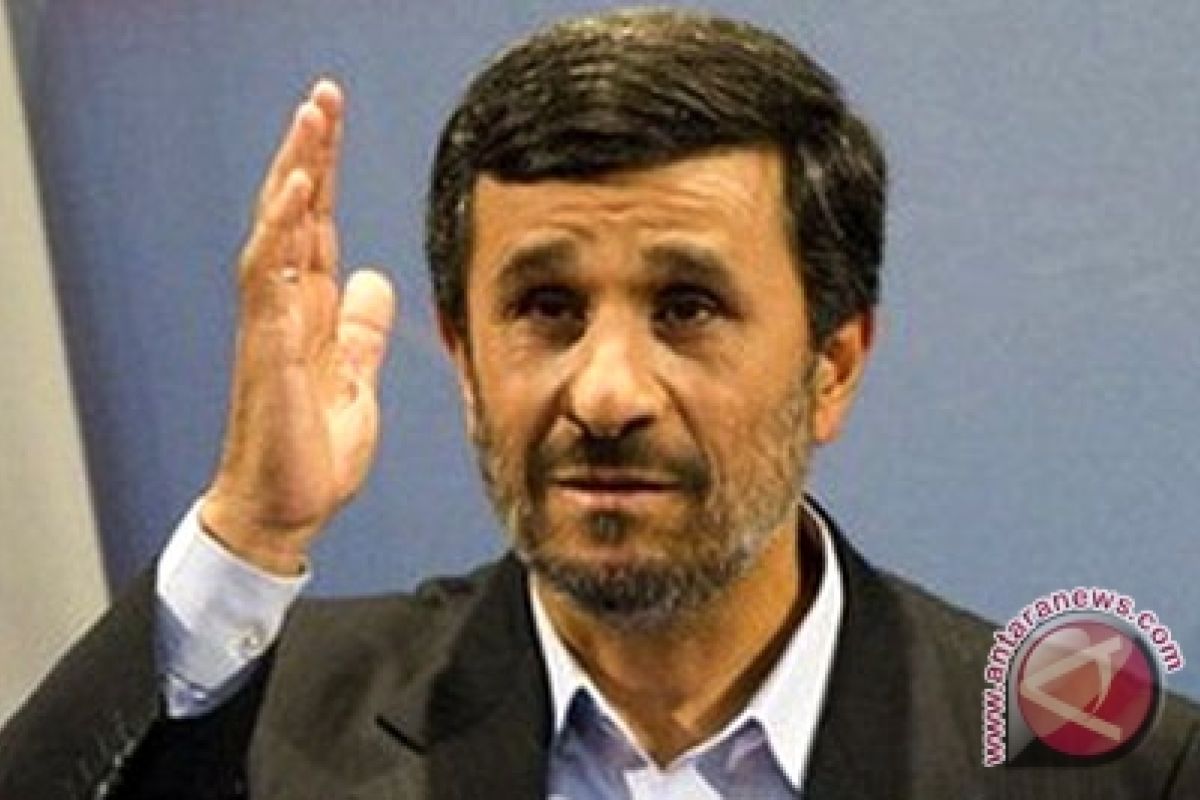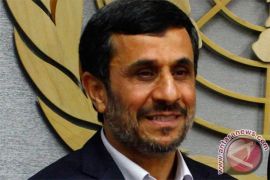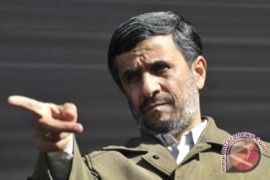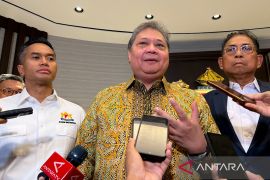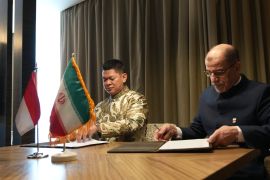"Iran is ready to protect its existence and sovereignty."Tehran (ANTARA News/AFP) - Iran will respond with force to any threats to its territorial integrity, President Mahmoud Ahmadinejad said on Tuesday, adding that it would prefer to cooperate with its Arab neighbours to maintain security in the Gulf.
"The armed forces and the army will inflict heavy regret and shame in case of any aggression against Iranian lands and interests," Ahmadinejad told military commanders and personnel on the occasion of Iran`s annual Army Day. Iran "is ready to protect its existence and sovereignty," he said.
Ahmadinejad did not explicitly refer to fresh tensions with Gulf Arab nations over an April 11 visit he made to the island of Abu Musa, which is claimed by both Iran and the United Arab Emirates.
But he said the key to lasting stability in the Gulf was regional cooperation.
"When it comes to the Persian Gulf, security is achieved only through the collective cooperation of all nations and governments," he said, while lashing out at "foreign interference which only causes destruction and division."
The remarks by the firebrand president, known for his controversial speeches, came hours before a meeting of foreign ministers of the six Gulf Cooperation Council states in Doha to discuss the simmering islands dispute between Iran and the UAE.
Tensions over three tiny Gulf islands, including Abu Musa, were heightened by Ahmadinejad`s assertion on the island during his visit last Wednesday that historical records proved "the Persian Gulf is Persian."
Abu Dhabi denounced Ahmadinejad`s visit as a "violation of UAE sovereignty" and recalled its ambassador from Tehran in protest.
The UAE has also lodged a protest with the United Nations over the visit, stressing that the territorial dispute should be resolved through negotiations or at the International Court of Justice.
Tehran on Monday advised caution and patience, with Foreign Minister Ali Akbar Salehi insisting Iranian sovereignty over the islands was "not negotiable."
UAE Foreign Minister Sheikh Abdullah bin Zayed al-Nahayan responded by warning that if left unresolved, the issue "could jeopardise international security and peace."
Iran, then under the rule of the Western-backed shah, gained control of the islands of Abu Musa, Lesser Tunb and Greater Tunb in 1971, as Britain granted independence to its Gulf protectorates and withdrew its forces.
Abu Musa, the only inhabited island of the three, was placed under joint administration in a deal with Sharjah, now part of the UAE.
Abu Dhabi says the Iranians have since taken over the entire island, which controls access to the oil-rich Gulf, and have installed an airport and military base on Abu Musa.
(U.G003/H-RN)
Editor: Priyambodo RH
Copyright © ANTARA 2012
